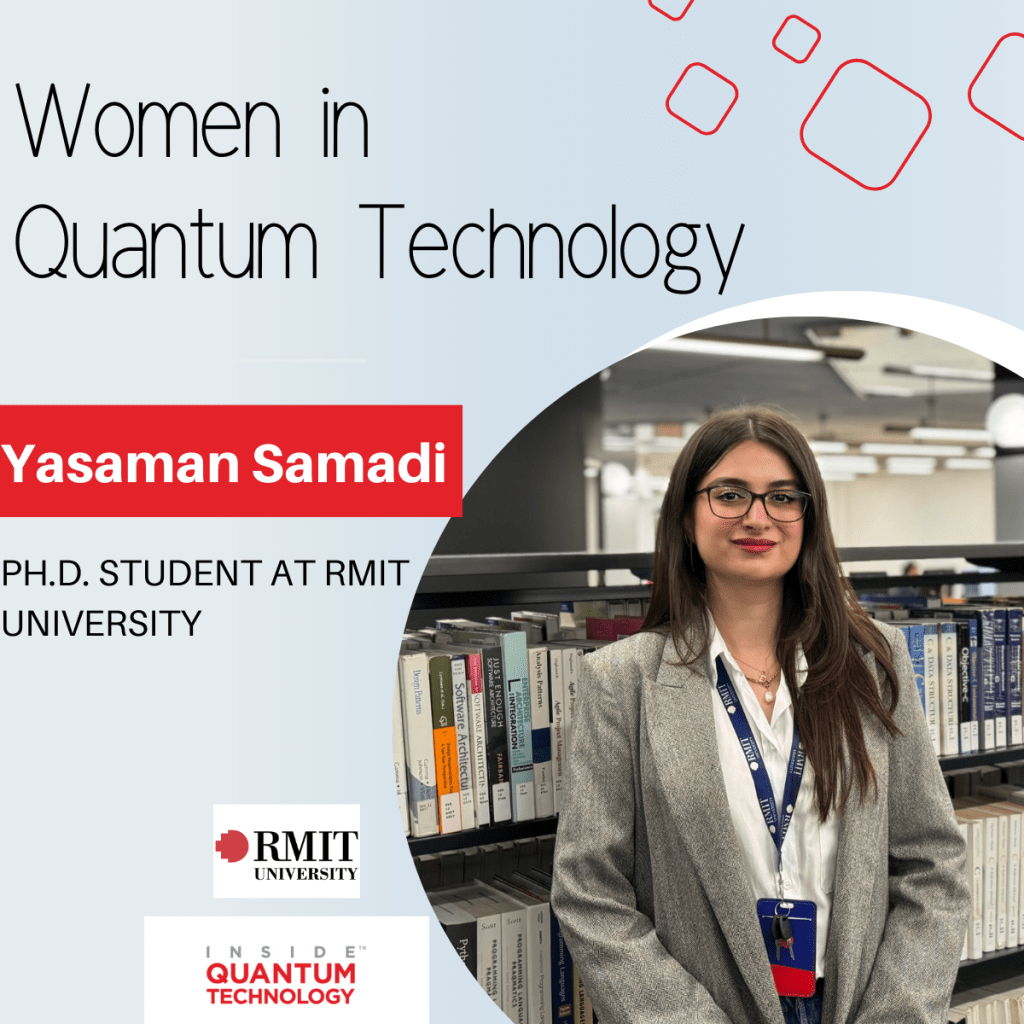As a Ph.D. student at the Royal Melbourne Institute of Technology (RMIT) University, Yasaman Samadi is part of the next generation of the growing quantum workforce. Like many other graduate students, Samadi’s passion for quantum combines a scientific interest in physics and a curiosity about the development of quantum technology. “The ability to harness the unique properties of quantum mechanics, such as superposition and entanglement, opens up possibilities that were once confined to science fiction,” Samadi told Inside Quantum Technology. “Whether it’s enabling ultra-secure communication through quantum cryptography, revolutionizing computing with quantum algorithms, or advancing our understanding of the quantum realm itself, quantum technology represents the cutting edge of scientific innovation. This potential for groundbreaking discoveries and practical applications has drawn me to the field. I’m eager to be part of a community pushing the boundaries of what’s possible in technology and science.”
Samadi’s journey into the quantum ecosystem is unique compared to other quantum researchers, as she worked in the industry before pursuing her Ph.D. at RMIT University instead of the opposite process. “I entered the quantum industry through a serendipitous opportunity while seeking employment in Europe,” Samadi elaborated. “It was a case of perfect timing when I stumbled upon a job opening at a startup company searching for a computer architecture engineer with a passion for quantum technology. The alignment of my skills and enthusiasm for quantum technology with their requirements was unmistakable. I decided to apply for the position, and to my delight, I secured the role. It was a fortuitous turn of events that allowed me to dive headfirst into the exciting world of quantum technology, and I haven’t looked back since.” Working in this position gave Samadi valuable hands-on experience that would serve her well in her journey into graduate school.
After spending three years in the quantum industry, Samadi applied and was accepted into RMIT University. She explained: “Currently, I am pursuing a Ph.D. at RMIT University in Melbourne, Australia, focusing on cybersecurity. My journey has always been driven by a deep curiosity for exploring the unknown and embracing new experiences. The quantum realm, with its inherent mysteries, and the pursuit of a Ph.D. both testify to my unwavering passion for science and my determination to contribute as a female academic and industry professional, using my voice to advocate for progress and innovation.” Samadi also highlighted her passion for quantum encryption, which “has reinforced my belief in the importance of diversity, especially in areas critical to securing sensitive information and communications, as it can lead to more robust and secure solutions,” she added. “I’m also actively engaged in the quantum world, participating in meetings and events in industry and academia, ensuring I remain connected to the cutting-edge developments in this field.”
Samadi has come to appreciate the need for diversity and inclusivity in the quantum ecosystem thanks to her continuous participation in this growing space. “Improving diversity in the industry is a paramount goal, and one crucial aspect is recognizing the significance of having women actively engaged in both industry and academia,” she explained. “To enhance diversity, it’s essential to foster an inclusive environment where women are encouraged and provided with equal opportunities to pursue careers in science and technology.”
Samadi gave concrete examples of ways to improve the industry’s inclusivity by highlighting, “Initiatives such as mentorship programs, scholarships, and outreach efforts can play a pivotal role in attracting and retaining female talent. Creating a culture that values diverse perspectives and experiences is vital, leading to more innovative solutions and a more representative workforce. Embracing this broader definition of diversity, with a particular emphasis on increasing the participation of women, will undoubtedly contribute to a more vibrant and equitable industry landscape.”
Kenna Hughes-Castleberry is the Managing Editor at Inside Quantum Technology and the Science Communicator at JILA (a partnership between the University of Colorado Boulder and NIST). Her writing beats include deep tech, quantum computing, and AI. Her work has been featured in Scientific American, Discover Magazine, New Scientist, Ars Technica, and more.
